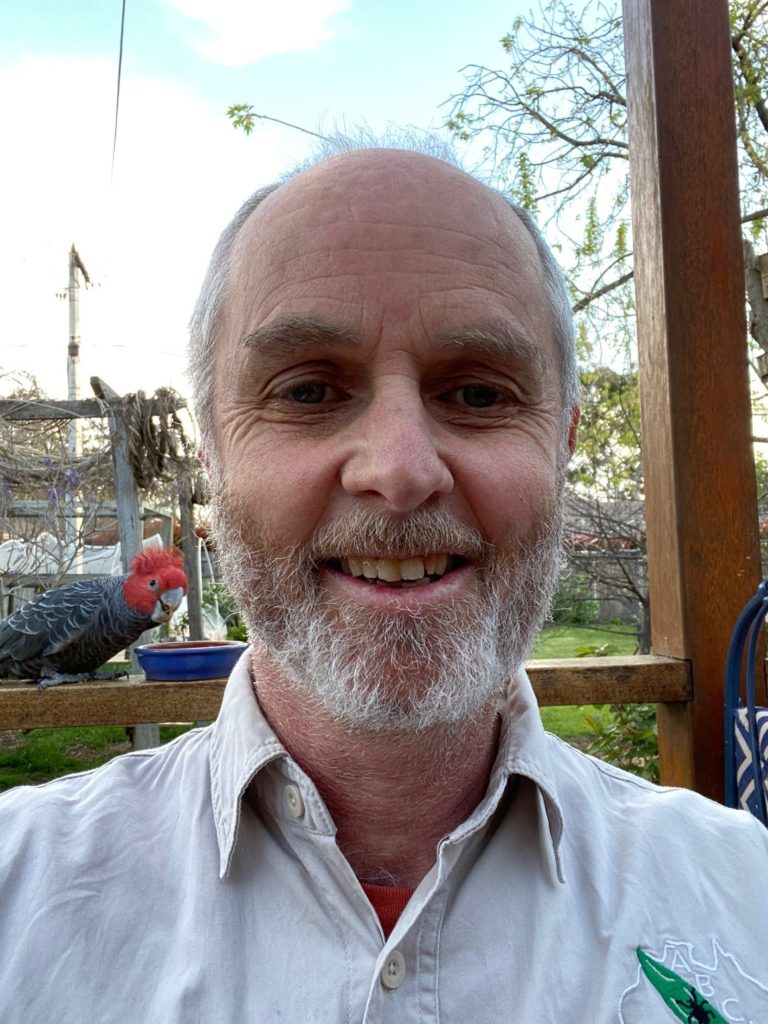 Professor Andy Sheppard
Professor Andy Sheppard
Research director, Managing Invasive Species and Diseases program, CSIRO Health and Biosecurity
See Professor Sheppard’s full research profile here.
Research outputs linked to policy change and decision-making
- Biodiversity policy and science. From 2010 to 2014, Professor Sheppard led CSIRO’s biodiversity portfolio, including the Atlas of Living Australia and the 5 CSIRO-led national biological collections. During that time, he led CSIRO’s engagement in the 2011 State of the Environment Report and CSIRO’s submissions to the 6 federal government reviews of biodiversity including; the EPBC Act (2011), National Biodiversity Strategy (2011), Biodiversity under Climate Change (2012), and Environmental Biosecurity (2014). He also co-led the writing of CSIRO biodiversity: science and solutions for Australia, one of 5 landmark CSIRO environmental science ‘explainer’ books for public and policy-makers.
- He built significant new multidisciplinary research programs co-partnering CSIRO science teams and Indigenous communities in Cape York, Kimberley, central Australia and the NT supported by the federal government’s $1 billion biodiversity fund. He championed development of genome-based rapid biodiversity assessment, building the largest environmental and phylogenetic genomics capability in CSIRO. He founded a program of research around biodiversity governance influencing how Indigenous Australians (Australia’s most significant biodiversity custodians) are managing land as protected areas with Indigenous knowledge. For 2 years, he co-led core priorities for the Western Australian Biodiversity Science Institute with The University of Western Australia, WA Department of Environment and Conservation and BHP partners. He also set up the ANU-CSIRO Centre of Biodiversity Analysis, which has led to 8 years of new collaborative and policy-relevant research on biodiversity, which continues today. Internationally, he also co-authored the biodiversity science scoping document for the international Belmont Forum and as a panel member of an external science review for GEOSS (home of GEO-BON) revised priorities around global data sharing and analysis.
- Managing invasive alien species and diseases. Dr Sheppard’s foundational science contributions have been in the field of biological control, where he is internationally recognised as an expert in invasive species management. His research has successfully controlled 2 species of invasive alien plant (Paterson’s curse and cape broom) and assisted with others, including Scotch broom and gorse key weeds in protected areas. In addition to billion-dollar economic benefits for Australia, there were direct benefits for listed endangered species and threatened communities. His research background in population ecology and risk assessment has influenced government process and policy for the importation, non-target impact-focused risk assessment and release of exotically sourced biological control agents. For example, biological control agents have a separate process for being added to the live import list than any other imported organisms. As a science leader, he has ensured for more than 10 years the development of long-term effective virus-based biocontrol of rabbits and built up and supported national biological control programs against carp and cane toads. Next generation biocontrol will be gene-tech-based, and he has led development of SYNBIO science innovation in this for more than 10 years. The arrival of CRISPR gene-editing is a game changer with the chance to eradicate widespread pests and his team is at the forefront of developing genome-engineered solutions, such as novel species and gene drives, against targets including rodents, fruit flies, cane toads, carp and eventually cats through teams in Perth, Canberra, the Australian Animal Health Laboratory in Geelong and in conjunction with social scientists and ethicists Australia and overseas. His team is also co-developing landscape-level feral animal management using ICT technologies with Indigenous communities through Brisbane and Townsville under the National Landcare Program.
Professor Sheppard is representing a research group with expertise in managing invasive species and diseases.
Current academic employment and positions
- 2013–present: research director, Managing Invasive Species & Diseases program, CSIRO Health and Biosecurity
- 2006–present: adjunct professor, Charles Sturt University
- 2009–present: director, CSIRO European laboratory, Montpellier, France
- 2013–present: relationship manager, CSIRO–Department of Agriculture, Water and the Environment (DAWE).
Highest qualification
- 1987: PhD (population ecology), Imperial College London, UK.
Major prizes, medals and honours
- Eureka Prize (1992 team) – weed biological control
- fellow, Australian Academy of Technology & Engineering (2019–present)
- fellow, Royal Entomological Society (1980–present)
- overseas affiliate, Académie d’Agriculture de France (2020–).
Roles on government or regional organisation committees
Links with non-government groups or networks
My Projects
 Current project
Current project Completed project
Completed project
NESP RLH, 2021-2027NESP, 2015-2021NERP, 2012-2015TRaCK, 2005-present
 Professor Andy Sheppard
Professor Andy Sheppard